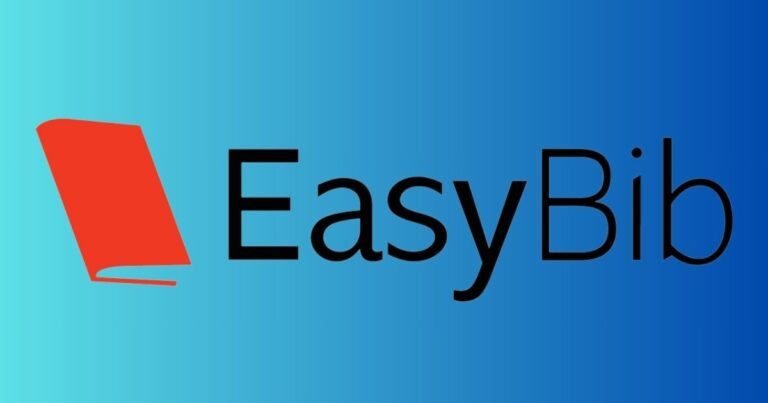In the complex landscape of academic writing, the significance of proper citation cannot be overstated. Citations not only give credit where it’s due but also bolster the credibility of scholarly work by allowing readers to verify sources. This is where EasyBib, an intuitive online citation tool, comes into play, revolutionizing the way students, researchers, and educators approach the often daunting task of bibliographic management. This article delves into the origins of EasyBib, its evolution, its impact on academic research, and its place in the future of educational technology.
The Genesis of EasyBib
Launched in the early 2000s, EasyBib was created out of a simple need: to make the citation process easier and more accessible for students. Its founders, then students themselves, recognized the challenges their peers faced when trying to navigate the myriad rules of citation styles like MLA, APA, and Chicago. They saw an opportunity to leverage technology to streamline this process, thus birthing EasyBib.
From its inception, EasyBib aimed to demystify citation, making it less about memorizing complex style guidelines and more about understanding the value of academic integrity and the role citations play in scholarly communication. Over the years, EasyBib has grown from a simple citation generator to a comprehensive research tool that offers features like plagiarism checks, grammar suggestions, and note-taking capabilities, making it a one-stop shop for research and writing support.
Core Features and Functionality
At its core, EasyBib is known for its citation generation capabilities. Users can input the details of their sources, and EasyBib automatically formats the information according to the selected citation style. This feature covers a wide range of source types, from books and journal articles to websites and film, accommodating the diverse materials used in modern research.
Beyond citation, EasyBib has expanded its suite of tools to include a plagiarism checker that scans texts for similarity to existing sources, helping students avoid unintentional plagiarism. Its grammar checker reviews writing for common errors, offering suggestions for improvement, which is invaluable in polishing academic papers to a high standard. The note-taking feature allows users to organize their research more efficiently, integrating source management and note-taking in a single platform.
The Evolution of EasyBib
EasyBib’s evolution is a testament to its commitment to addressing the dynamic needs of the academic community. Initially focused solely on citation generation, EasyBib responded to the broader challenges students faced in writing and research by incorporating additional features. This evolution was driven by advancements in natural language processing and machine learning, enabling more sophisticated analysis of text for plagiarism detection and grammar checking.
The acquisition of EasyBib by Chegg, a leading educational technology company, marked a significant milestone, providing the resources to further enhance its offerings. Today, EasyBib stands as part of a larger ecosystem of educational tools designed to support students throughout their academic journey, from research to writing to review.
Impact on Academic Research and Writing
EasyBib has had a profound impact on academic research and writing, particularly in how students approach the citation process. By simplifying citation, EasyBib has made it more accessible for students to adhere to academic integrity standards, reducing the barriers to proper source attribution. This ease of use encourages more diligent citation practices, which is essential in an era where information is abundant and diverse.
Furthermore, EasyBib’s integrated research tools have streamlined the writing process, allowing students to focus more on the content of their work rather than the technicalities of citation and grammar. This holistic approach to research and writing support not only enhances the quality of academic papers but also fosters a more organized and efficient research process.
EasyBib in the Landscape of Educational Technology
EasyBib’s role in the broader landscape of educational technology is significant, embodying the shift towards digital solutions that enhance learning outcomes. As part of Chegg’s suite of educational tools, EasyBib contributes to a comprehensive approach to academic support, reflecting the growing importance of technology in education.
The future of EasyBib and similar tools lies in their ability to integrate seamlessly into the academic workflow, offering personalized support that adapts to individual learning styles and needs. As artificial intelligence and machine learning technologies continue to advance, tools like EasyBib will become even more sophisticated, providing insights and suggestions that further enrich the research and writing process.
Challenges and Considerations for the Future
Despite its many benefits, the reliance on tools like EasyBib raises questions about the development of research and citation skills. Educators and students alike must balance the convenience of automated tools with the need to understand the principles behind citation and research. Ensuring that students learn to critically evaluate sources and understand the rationale for citation is essential in maintaining the integrity of academic work.
Looking forward, the challenge for EasyBib and the educational technology sector is to continue innovating while promoting these foundational skills. By incorporating educational components that reinforce the importance of citation and research integrity, EasyBib can play a crucial role in shaping well-informed, ethical scholars.
Conclusion: EasyBib as a Catalyst for Change in Academic Writing
EasyBib has undeniably transformed the landscape of academic research and writing, making citation and source management more accessible and less intimidating. Its evolution from a simple citation generator to a comprehensive research tool reflects the changing dynamics of education and technology, offering a glimpse into the future of academic support.
As EasyBib continues to adapt and expand its features, it stands as a testament to the potential of technology to enhance learning and research. By fostering a deeper understanding of academic integrity and streamlining the research process, EasyBib not only simplifies citation but also enriches the academic experience, preparing students for the complexities of scholarly communication in the digital age.
Read Also: Tudor Dixon: Rising Political Star Shaping the Future of Conservative Politics

